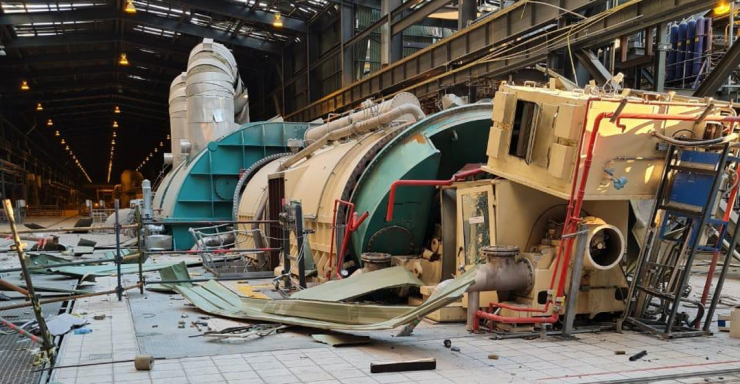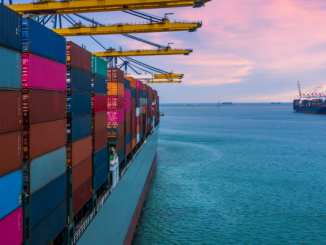

Founder: Turnaround Talk
Before I started this blog, and my interest in the world of business rescue and restructuring, I was a journalist in the insurance industry. I had no previous exposure to the turnaround profession outside of my father-in-law who is a prominent turnaround professional. When I started Turnaround Talk, and our discussions surrounding the profession, he told me that in 90% of cases, mismanagement is the biggest root cause of financial distress. Nowhere has this been more evident than with Eskom.
My first real exposure to the company, outside of expletive lamenting when the lights get switched off during loadshedding, was during a discussion that was held by the University of Pretoria that focused on the future of privatisation and the value it can add to South Africa as a driver of economic growth. Eskom Chief Executive, André de Ruyter, was one of the panellists and had to fend off an incessant line of questioning regarding Eskom’s position on privatisation.
While handling the line of questioning in a capable manner, he did give the impressions that this was not the first time he had this discussion. After the round table, many people questioned why De Ruyter took the job in the first place.
I have previously discussed the challenges that Eskom faces. Circling back to my introduction, investigations done by News24 have uncovered the extent of the challenges that De Ruyter faces on a daily basis. It seems as if mismanagement is an acceptable mantra at Eskom.
Leadership ultimatum
The News24 article points out that De Ruyter threatened to resign his position a mere three months into his tenure when Sifiso Dabengwa, an Eskom board member, falsely accused him of misleading the board after he cancelled a R14 billion fuel oil tender.
De Ruyter presented Eskom board chairperson, Malegapuru Makgoba, with an ultimatum that would put his future at the power utility in question; either Dabengwa left, or he would depart. This ultimatum came after an investigation cleared De Ruyter of wrongdoing. The board had initiated an independent probe after Dabengwa accused the De Ruyter of misleading the board in his submissions around the tender which he believed needed to be cancelled.
When things came to a head, De Ruyter phoned Makgoba. “Either he goes, or I go,” De Ruyter told Makgoba.
Dabengwa resigned from the board on 27 July 2020.
Vindicated in the courts
The News24 article adds that De Ruyter would later be vindicated when the high court agreed, setting aside the tender award, which would have seen suppliers, including Econ Oil, sign five-year contracts for the supply of fuel oil. Fuel oil is burned in the boilers when generation units are started up.
Econ Oil had been a significant supplier of fuel oil to Eskom since the early 2000s, and Eskom is currently embroiled in dispute resolution proceedings with Econ to recover more than R1 billion it believes Econ was overpaid historically.

Photo By: News24
The new tender that De Ruyter wanted cancelled would have seen Econ awarded a supply deal worth R8 billion – despite evidence of alleged corruption between Econ Oil and Eskom officials being unearthed by forensic investigators. The matter was reported to police in 2020.
Days after being appointed, De Ruyter, who had already noticed things were amiss with the fuel oil tender, was already at the receiving end of serious allegations questioning his integrity from Dabengwa, the then chairperson of Eskom’s powerful investment and finance committee (IFC).
De Ruyter starts investigating
The News24 article points out that just five days after he was appointed, De Ruyter attended an IFC meeting, during which he noticed that the board was considering a budget increase for a five-year fuel oil tender, from R14 billion to R18 billion, making it one of the largest expenditure items for Eskom.
Econ was suspended as a supplier from Eskom in 2018, pending an investigation into alleged impropriety, but was brought back and allowed to bid for the contract which De Ruyter and Dabengwa grappled with. Eskom suspended Econ Oil again last year, a decision which the company is challenging.
The article added that De Ruyter was concerned that Eskom simply had no money for this increase, which, he said, was poorly motivated for. De Ruyter’s concerns fell on deaf ears. While the IFC did not approve the increase at the time, De Ruyter took further steps to investigate the Econ Oil tender, but, in doing so “set himself on a collision course with Dabengwa and Econ”.
No proper bid evaluation
The News24 article pointed out that, in March 2020, De Ruyter asked Makgoba to circulate a resolution among board members to cancel the five-year tender award due to lack of expertise. He also cited findings of an investigation by law firm Bowmans, who had found evidence of possible corruption involving Econ Oil and possible overcharging that had first been flagged by McKinsey consultants in 2016.
The resolution was immediately met with resistance from Dabengwa, who wrote to the Eskom board on the same day to reject De Ruyter’s decision. According to board minutes, seen by Cowan, Dabengwa raised concern that management provided false information to the board to motivate for the cancellation of the tender. He said this information was provided to the board as if it was relevant to the discussion, but had no bearing on the matter at hand.
The article adds that eventually, Dabengwa called for a vote, and seven out of 10 board members voted to cancel the tender. That same day, Dabengwa emailed Makgoba to ask for guidance and confirmed that he had levelled serious accusations against De Ruyter.
Dabengwa and De Ruyter exchanged heated submissions, with Dabengwa calling for an independent investigation into the matter without detailing his complaints. De Ruyter responded by contacting Makgoba.

Photo By: Eskom
“An accusation of this gravity levelled against the group chief executive is an equally serious issue and goes to the heart of the relationship between the board and management. Making allegations of this nature against De Ruyter without the required adequate evidence is more than merely problematic, but fatally undermines the level of trust that is required for a constructive relationship with the board,” De Ruyter told Makgoba.
He said that, to ignore serious findings made against a bidder when considering a new bid, is “an exceptionally captious contention”.
“By this logic, Eskom should have no compunction in entering new business relationships with inter alia McKinsey, Tegeta, Deloitte, Tubular and others, because any irregularity occurred in the past and is therefore expunged from consideration if a new contract is entered into. This is clearly not the case.”
De Ruyter then provided Makgoba with the ultimatum regarding Dabengwa.
Dabengwa said the Econ Oil matter was not examined properly and maintained De Ruyter had deliberately misled the board. “I haven’t changed my position from what I have said,” Dabengwa told Cowan.
Providing value
It is no secret that at all times, companies – especially those facing the challenges that Eskom faces – has a fiduciary duty to add value to its shareholders (creditors).
Not only is the public funding Eskoms recovery through increased electricity tariffs (which Nersa has approved), Eskom has time and again been on the receiving end of Government financial bailouts which have been funded through taxpayers money. In essence, we are significant shareholders in Eskom.
We have seen this in the past though. Mismanagement was the downfall of South African Airways when Dudu Myeni used and abused the airline. How far will we let Eskom fall from grace before we draw a line in the sand and say that enough is enough?




